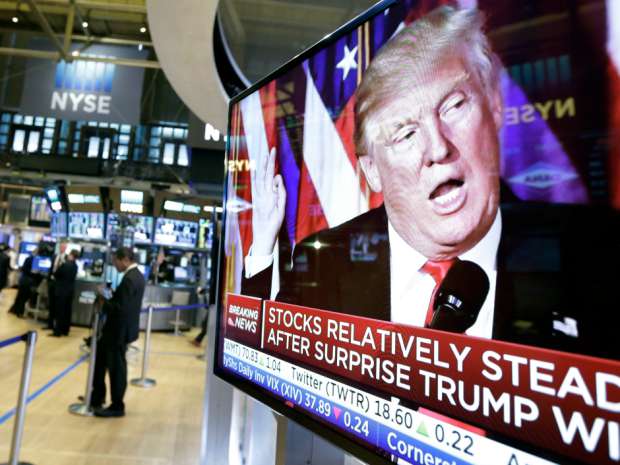
London & Capital’s Daniel Freedman takes a view on the markets following Donald Trump’s election victory.
The election of Donald Trump to the White House was unexpected, by pollsters, by markets and by large swathes of the US population. However, for some the momentum behind the anti-globalisation movement was already apparent with the Brexit vote and the rise of nationalist parties across Europe. Regardless, Trump’s victory has created some early volatility in markets, which has generated a lot of questions from our clients, but its longer-term implications are more difficult to judge.
Trump has been elected on an agenda that includes a huge fiscal stimulus package. He has promised around $5 trillion in tax cuts and infrastructure spending. If he gets his policies through, many US citizens could expect a tax cut – currently he is proposing cutting the seven income tax brackets down to three: with rates at 12 per cent, 25 per cent and 33 per cent.
He has promised to repeal Obamacare, which would also save the highest rate taxpayers 3.8 per cent. He also wants to get rid of death taxes altogether and lower business tax rates, including instituting a favourable rate for companies to repatriate capital held offshore. Whilst these measures could benefit everyone, to do this, he will have to borrow – at least in the short-term until he can engineer growth.
On the down side, Trump himself said that his election would be ‘Brexit plus plus plus’. This has highlighted the change in the electoral order, with the increasing popularity of parties that claim to address the challenges of globalisation. This has parallels in Europe, notably with The Five Star Movement in Italy led by Beppe Grillo, a comedian and blogger. Its anti-globalisation, anti-European message is finding resonance across the continent. More uncomfortably, far right movements are gaining ground in France and Germany, which both have general elections next year.
The result may be the disintegration of established institutions, particularly those that have proved most resistant to change. The European Union may potentially be a victim of this, amplifying an already expected impact on investors.
With regards to the initial impact on markets, the key reason that Trump’s election has prompted nervousness is his international outlook. Initially, his comments on protectionism raised fears of higher tariffs, and problems for those exporting into the US. He has is talking about tearing up trade agreements such as NAFTA, the Trans-Pacific Partnership and the Trans-Atlantic Trade and Investment Partnership, and he looks set to see these promises through. This could be very bad news for some emerging markets and Trump has particularly targeted Mexico and China.
While the election result was not predictable, the market response was more so. Markets had positioned themselves for a Hillary Clinton victory and initially sold off heavily on her defeat. There was considerable volatility as investors looked to adjust their positions, seeking out ‘safe havens’ such as gold.
At London & Capital, we have seen plenty of concern among our clients about the uncertainty created by a Trump win, and alarm at some of his policies. I have received calls from clients eager to withdraw from risk assets and move into areas such as property.
We do not believe this is a time to be panicked. We repositioned client portfolios a number of weeks ago and will monitor the fallout with care, examining what Trump’s spending plans will do to markets, how his economic plans will develop, and the political implications of his election as we get more clarity. There will undoubtedly be volatility as markets digest the news, and this may bring selected opportunities. Significant though Trump’s victory is, it does not represent a profound disruption of the existing world order.






